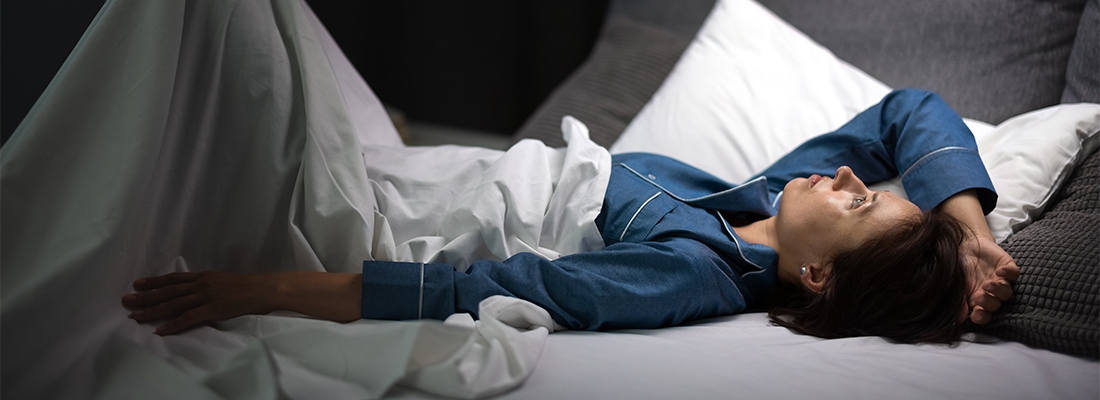
While most people are well-informed of the perks of good quality sleep, few understand the consequences of not getting enough of it. Maybe, some might realize how it affects emotional stability, energy levels, and productivity. However, did you know that it influences your physical health to the point that it becomes life-threatening? That’s right!
Statistics show that too little sleep heightens the risk of diabetes, heart failure, stroke, and even, death. Primarily, it does not directly cause you to die but it creates consequences that bring you closer to death. For example, serious health issues, acute mental instability, and a higher probability of accidents. So, can you die from insomnia? Let’s see!
Looking into Insomnia
First, let’s learn what insomnia feels like to better understand how it affects one’s life expectancy. Insomnia is a broad umbrella term for a person’s inability to sleep and maintain sleep quality. Precisely, it refers to a condition where a person cannot sleep despite optimal sleeping conditions and a comfortable environment. Therefore, an insomniac struggles to sleep as much as a healthy individual may require.
Generally, it comes in different types ranging from genetic insomnia to paradoxical and even psychophysiological insomnia. Moreover, patients may experience the condition both short-term and long-term, depending on various factors. To understand the answer to, ‘Can you die from insomnia?’, we need to understand the physical and mental challenges it brings.
What it Feels Like
While lack of sleep affects every individual differently, a few of its symptoms might look like this:
After 24 hours
Initially, the day following a poor night’s sleep, you may experience:
- Fatigue and lethargy
- Lower attention span and lack of focus
- Headaches/ Migraines
- Stress, irritability, and frequent mood swings
- Daytime sleepiness
Longer than 48 hours
These symptoms may subside once a person rests well for the next two days. However, continuous lack of sleep may worsen the situation. These are some intense symptoms that may develop after a prolonged lack of sleep:
- Extreme exhaustion and spurts of anger
- Hallucinations, intrusive thoughts, and severe anxiety
- Chronic depression
- Serious health problems such as nausea, high blood pressure, or atherosclerosis
- Inability to complete daily tasks
- Higher risk of accidents
- Low immunity
So, Can Insomnia Kill You?
Now, let’s address the burning question: can you die from insomnia? In a direct sense, the answer is no. A single night (or even a few nights) of sleeplessness is unlikely to result in death. However, chronic sleep deprivation—where insomnia lasts for weeks, months, or even years—can contribute to conditions that might seriously threaten your life.
Struggling to Get a Good Night’s Sleep?
Explore effective insomnia treatments designed to help you sleep better and wake up refreshed.
The Domino Effect: How Lack of Sleep Affects Your Health
Let’s break this down:
Impaired Brain Function
First and foremost, when you don’t get enough sleep, your brain does not work properly. This is because sleep is necessary for memory consolidation, mood management, and cognitive processing. Therefore, a lack of sleep can affect your judgment, induce mood changes, and even make you more prone to accidents. Also, chronic sleeplessness might raise your chances of contracting mental health problems such as depression and anxiety.
Greater Risk of Cardiovascular Conditions
During sleep, your body gets a chance to recover, repair, and regulate its systems. Hence, without this recovery period, the strain on your cardiovascular system can become severe. This takes where the impact of insomnia goes beyond just mood and brain fog. Consequently, the answer to, ‘Can you die from insomnia?’ becomes more serious. Complex health conditions like heart disease, obesity, stroke, and diabetes usually hinder a person’s life span.
Immune System Shutdown
It is during our sleep that the body produces essential defensive proteins like cytokines. The body requires them in good amounts during an infection, inflammation, or invasive disease. Unfortunately, the concentration of these proteins is reduced when people suffer from sleep, weakening the immune system. Again, this makes the body more likely to catch infections and serious health disorders.
Increased Risk of Diabetes and Obesity
A recent study found that people sleeping less than seven hours were 1.83 times more likely to become overweight. Often, insomnia disrupts the balance of hunger-related hormones, leading to an increase in appetite, especially for unhealthy foods. The result? Weight gain, obesity, and an increased risk of developing type 2 diabetes.
Also, research suggests that poor sleep can lead to insulin resistance, a precursor to diabetes. This further explains why people ask, ‘Can you die from insomnia’. While you can’t die from insomnia in the traditional sense, chronic insomnia can be deadly considering the long-term health effects.
Increased Risk of Accidents
One of the most immediate dangers of insomnia is the risk of accidents. Sleep-deprived people have slower reaction times and impaired motor skills, making them more likely to cause car accidents, workplace injuries, or accidents at home. In fact, drowsy driving is responsible for thousands of accidents each year, and it can be just as dangerous as driving under the influence of alcohol.
Diagnosed with Insomnia: What Next?
Now that we know the severe implications of insomnia, what can we do to manage the condition? If you are feeling repressed by the question, ‘Can you die from not sleeping?’, know that this only applies to extreme cases. Those who are diagnosed with insomnia are completely curable with simple lifestyle changes and consulting with sleep specialists.
Our Sleep centers offer personalized guidance to cater to your unique sleep concerns and propose innovative solutions. They might even recommend a sleep study to understand your sleep patterns and underlying issues such as sleep apnea, restless leg syndrome, or hypersomnia.
Ready to Book Your Appointment?
Take the first step toward better health—schedule your visit now with our expert team.
Conclusion: Sleep That Boosts Your Lifespan
To conclude, the answer to, ‘Can you die from insomnia?’ does not possess a single and direct answer. It is nuanced and widely varies based on the severity of the condition. For example, if it does not affect your physical health and you go back to normal in one or two nights, you are good. However, if it prevails as a complex cycle of restlessness, mental strain, and serious diseases, work things out with a professional sleep expert. With the right combination of lifestyle tweaks, professional support, and a little patience, you can rewrite your sleep story.

